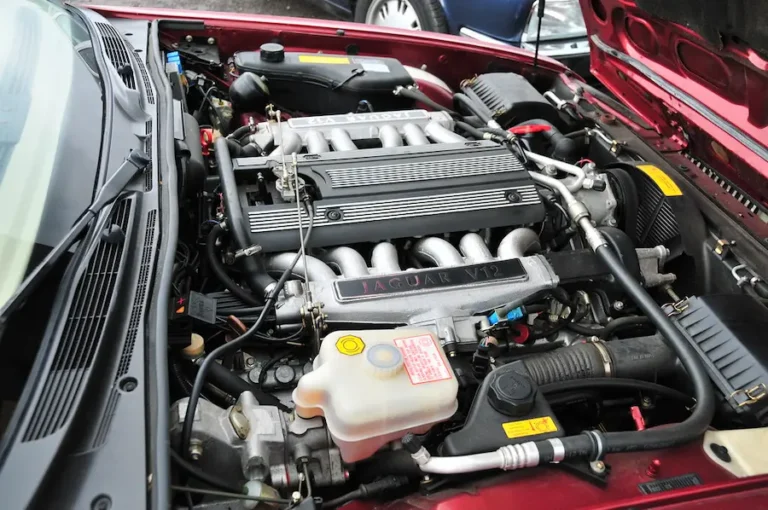What Causes an Engine Misfire?

Key Takeaways:
- Engine misfires can stem from ignition, fuel, and air supply issues.
- Symptoms include rough idling, loss of power, and illuminated check engine light.
- Common causes include worn spark plugs, clogged fuel injectors, and faulty sensors.
- Diagnosing misfires early prevents severe engine damage and expensive repairs.
- Regular maintenance can significantly reduce the risk of misfires.
Introduction
If you’ve ever dealt with an engine misfire, you know it’s more than just a little hiccup. It’s downright frustrating—whether your car is shaking at idle, losing power when you need it, or even stalling in traffic. Trust me, it’s not just an annoyance; it’s a sign that something bigger is happening under the hood. From personal experience, I can tell you that ignoring it is never a good idea. Misfires can lead to bigger issues down the road, so let’s dig into what causes them and how to fix them before they turn into major headaches.
1. Understanding Engine Misfires
What Is an Engine Misfire?
A misfire happens when your engine’s cylinders don’t fire off like they’re supposed to, which throws the whole combustion process off balance. The result? You lose power, your car starts running rough, and your fuel economy takes a nosedive.
Types of Engine Misfires:
- Random misfires: These can be a real pain because they’re unpredictable and can affect multiple cylinders. You never know when it’ll happen next!
- Cylinder-specific misfires: These are a bit easier to track down since they focus on just one cylinder, so the issue is more isolated.
2. Symptoms of an Engine Misfire
Common Signs of a Misfire:
- Rough Idling: If your car feels like it’s doing a dance while sitting at a red light, it’s probably a misfire.
- Poor Acceleration: Ever pressed the gas and felt like your car is dragging its feet? That’s another classic misfire symptom.
- Decreased Fuel Efficiency: When your engine isn’t burning fuel efficiently, you’ll notice you’re filling up more often than usual.
- Engine Hesitation: You press the gas, but your car stutters or hesitates before responding. I’ve been there, and it’s a pretty unsettling feeling.
- Check Engine Light Activation: Don’t ignore this! If that little light is on, your car is telling you something’s up, and more often than not, it’s related to a misfire.
Sound Clues:
If you hear popping, coughing, or even full-on backfiring, that’s your engine telling you it’s not happy. I’ve heard everything from tiny sputters to loud bangs, and each one points to a different headache under the hood.
3. Ignition System Causes
3.1 Faulty Spark Plugs
When it comes to misfires, spark plugs are often the main culprit. Over time, they wear down, and trust me, I’ve learned to keep a close eye on them before they cause bigger problems.
- Signs of worn-out spark plugs:
- Carbon buildup or oil fouling.
- Engine stalling or rough running.
I remember replacing my spark plugs after a persistent misfire, and the difference was immediate—my car went from shaky to smooth in no time.
3.2 Ignition Coil Problems
The ignition coil is what gives the spark plugs the juice they need. When one goes bad, I’ve noticed misfires tend to happen under load—like when you’re trying to accelerate or climb a hill.
- Symptoms of a bad ignition coil:
- Misfires when accelerating.
- Rough idling.
- Stalling or hesitating when you hit the gas.
3.3 Spark Plug Wires
These wires carry the electricity from the ignition coil to the spark plugs. If they’re damaged or worn, you’ll definitely notice misfires, especially at higher speeds.
- Signs of faulty spark plug wires:
- Visible cracks.
- Misfires during higher RPMs.
4. Fuel Delivery Issues
4.1 Clogged Fuel Injectors
Fuel injectors are responsible for spraying fuel into the engine’s cylinders. When they’re clogged, the fuel doesn’t get where it needs to go, and that can cause all kinds of problems. I’ve had my fair share of issues with clogged injectors, and it’s usually accompanied by a rough idle or stumbling during acceleration.
- Symptoms of clogged injectors:
- Hard starts.
- Rough idling.
- Poor fuel economy.
One time, I used a fuel system cleaner to deal with a clogged injector, and it worked wonders—my car ran like new afterward.
4.2 Fuel Pump Problems
The fuel pump’s job is to get gas from the tank to the engine. If it can’t do that properly, especially under load, your engine will misfire. I’ve experienced this, and the lack of power was immediate and frustrating.
- Fuel pump failure signs:
- Difficulty starting.
- Poor performance, especially when you really need the power.
4.3 Dirty Fuel Filters
A dirty fuel filter can restrict the flow of fuel to the engine, making it run lean. I’ve learned the hard way that replacing this small part regularly can save you a ton of trouble later on.
- Symptoms of a dirty fuel filter:
- Engine hesitation.
- Reduced power.
- Difficulty starting.
5. Air Intake Problems
5.1 Vacuum Leaks
Vacuum leaks are sneaky—they let extra air into the system and mess with the air-fuel mixture. One time, a cracked hose caused a major misfire in my car, and it took a while to track it down.
- How vacuum leaks cause misfires:
- Extra air throws off the air-fuel balance, leading to poor combustion.
- Cracked hoses or faulty gaskets are usually the culprits.
5.2 Dirty Air Filters
When your air filter is clogged, the engine struggles to get enough clean air, which messes with combustion. I always make sure to change mine regularly, because a dirty filter can cause misfires that are totally avoidable.
- Symptoms of a dirty air filter:
- Reduced engine power.
- Rough idling.
- Poor fuel efficiency.
6. Engine Control System Faults
6.1 Failing Oxygen Sensors
A failing oxygen sensor sends the wrong info to your engine control unit (ECU), which can lead to misfires. I’ve had a few sensor issues before, and it was tricky figuring out why the engine wasn’t running right.
- Symptoms of a bad oxygen sensor:
- Check engine light.
- Poor fuel economy.
- Rough running.
6.2 Mass Airflow Sensor Issues
The mass airflow (MAF) sensor monitors how much air is coming into the engine. When it fails, the ECU doesn’t know how much fuel to add, and that causes misfires. I’ve replaced a faulty MAF sensor before, and the fix was almost immediate.
- Signs of MAF sensor failure:
- Rough idling.
- Engine stalling right after starting.
7. Mechanical Engine Problems
7.1 Worn Piston Rings
Piston rings seal the combustion chamber, and when they wear out, oil can leak into the cylinders, causing all sorts of misfires. This happened in one of my cars, and it led to a pretty expensive repair.
- Impact of worn piston rings:
- Loss of compression.
- Oil burning, which leads to exhaust smoke.
7.2 Timing Belt or Chain Failure
If your timing belt or chain slips or breaks, your engine’s valves and pistons will be out of sync, leading to misfires. I had a timing chain issue once, and it wasn’t a quick fix, but it definitely solved the problem.
- Symptoms of timing belt or chain failure:
- Engine won’t start.
- Misfires and rough running.
8. Diagnosing Engine Misfires
Diagnosing a misfire can take a bit of patience, but a few key tools can make it easier:
- Step 1: Use an OBD-II scanner to read trouble codes. This saved me once when I had a misfire on cylinder 3—turned out to be an ignition coil issue.
- Step 2: Check your spark plugs, coils, and fuel injectors.
- Step 3: Run a compression test if needed.
- Step 4: Inspect for vacuum leaks or faulty sensors.
9. How to Fix an Engine Misfire
9.1 Replacing Spark Plugs and Coils
Sometimes, swapping out old spark plugs or coils is all it takes. I’ve done this more times than I can count, and it almost always gets rid of the misfire.
9.2 Cleaning or Replacing Fuel Injectors
Fuel system cleaner can work wonders for clogged injectors. If that doesn’t do the trick, replacing them is the next step.
9.3 Repairing Vacuum Leaks
A smoke test is the best way to find those pesky vacuum leaks. Once I found a cracked hose in my intake system, and replacing it solved the problem.
10. Preventing Engine Misfires
Preventing misfires comes down to regular maintenance. I always stick to the recommended service schedule for spark plug changes, clean my filters, and use high-quality fuel. A little effort here saves you from a big repair bill down the line.
Case Studies: Real-World Engine Misfire Diagnoses
Case 1: Faulty Ignition Coil
A misfire under acceleration was traced to a bad ignition coil. After replacing it, the car ran smoothly again.
Case 2: Clogged Fuel Injector
A friend’s car had a rough idle and was struggling to start. After troubleshooting, we cleaned the fuel injectors, and the engine performance immediately improved.
Case 3: Vacuum Leak
I once had a persistent misfire that ended up being caused by a vacuum leak. Replacing a cracked hose fixed the issue right away.
Conclusion
A misfire isn’t just an annoying hiccup; it’s your engine’s way of telling you something’s wrong. From my experience, catching it early can save you a lot of headaches (and cash). Whether it’s a simple spark plug issue or something trickier like a vacuum leak, diagnosing and fixing the problem right away is key. Regular maintenance is your best bet to keep your engine running smoothly and avoid misfires altogether.
Frequently Asked Questions (FAQs)
Q1: Can a misfire damage my engine?
A: Absolutely! Ignoring a misfire can wreak havoc on parts like your catalytic converter or even your pistons.
Q2: What should I do if my check engine light comes on due to a misfire?
A: Don’t wait—get your car checked as soon as possible to prevent further damage.
Q3: Can bad fuel cause a misfire?
A: Yes, contaminated or low-quality fuel can disrupt combustion and lead to misfires.
Q4: How can I tell which cylinder is misfiring?
A: Use an OBD-II scanner to pull the specific error codes that tell you which cylinder is acting up.
Q5: Is it safe to drive with an engine misfire?
A: No, driving with a misfire can cause further damage to your engine. It’s best to address the issue immediately.
Thanks for checking out this article on EngineEcho.com! Hope you found this article: "What Causes an Engine Misfire?" helpful! If you liked it and want to dive into more car engine topics, head over to our homepage. There's always something new to discover in the world of engines. Enjoy your reading journey!
Check out our previous article: The Role of Spark Plugs in Your Engine






